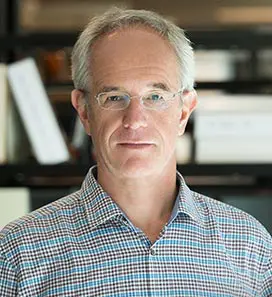Identifying the top 10 longevity researchers is a difficult task, identifying the top 100 would be almost impossible, however, faced with a choice, I would choose to mention the individuals listed below.
Each of them focuses on a small piece of the huge puzzle which is human ageing and longevity. Breakthroughs in the fields mentioned below could however drive the science of longevity forward in a significant way.
I have included links for you to learn more about their fields of research and how they could apply to lengthen lifespan. The order in which they are mentioned is random and not in order of importance. In my humble opinion, it would be almost impossible to rank researchers according to the applicability of their work. The longevity landscape is vast, and contributions, however relevant or groundbreaking to a specific problem, inevitably fail to address countless other critical issues.
But without further ado, here is my list.
George Church, PhD
George Church, PhD, is a professor of genomics. He holds this position at Harvard Medical School and the Massachusetts Institute of Technology. A milestone in his illustrious career includes being a founding member of the Human Genome Project in 1985, leading him to be considered by some as the founding father of genomics. The project sought to be the first to sequence the entire human genome and laid much of the groundwork for the creation of technologies that are commonplace today. Dr Church is regarded as a premier scientist in gene editing and synthetic biology.
Dr Church is working on technologies that include combination gene therapies to reverse age-related biomarkers and make animal organs suitable for human transplant, and in so doing, lend these organs resistance to DNA damage and give them tolerance to cryopreservation.
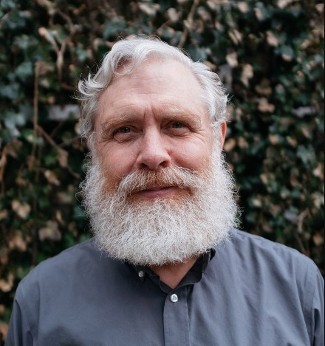
Source: Wikimedia
Learn more about Dr Church at Wyss Institute at Harvard University.
Elissa Epel, PhD
Elissa Epel, PhD, is a Professor in the Department of Psychiatry at the University of California. Among her many roles, she serves as the director for the Aging, Metabolism, and Emotions Center at UCSF and holds a council position at the Mind & Life Institute.
Her research focuses on the length of telomeres and how stressors like addiction, diet, metabolic health, exercise and meditation affect telomeres. Current research includes clinical trials investigating the effects of self-regulation and mindfulness training on cellular ageing, weight, diet, and glucose control.
Telomere length is essential for healthy ageing as when telomeres become too short and chromosomes reach a critical length, this shortening then causes cells to enter senescence.
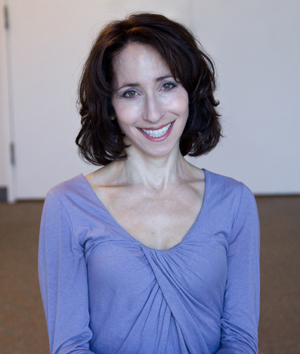
Source: UCSF
Dr Elissa Epel is also known for co-authoring The New York Times bestseller The Telomere Effect in 2017 with Nobel Prize Winner Dr Elizabeth Blackburn.
Learn more about Dr Epel at AME Center at UCSF.
Eric M. Verdin, M.D.
Dr Verdin is a professor of Medicine at the University of California, San Francisco, and chief executive officer of the Buck Institute for Research on Aging.
Dr Verdin’s laboratory has many focus areas worth mentioning, of which those most relevant to this article are:
- The role of epigenetic regulators in the ageing process
- The role that diet and metabolism play in the ageing process
- The chronic diseases of ageing, including Alzheimer’s
- How certain proteins play a pivotal role in linking caloric restriction to increased lifespan
- Ketogenesis
To name but one area of inquiry, he looks at how beta-hydroxybutyrate, which is a major circulating ketone during ketosis, may inhibit HDACs (histone deacetylases). The inhibition of HDACs may lead to the increased expression of the notorious longevity gene Foxo3. Mice receiving exogenous beta-hydroxybutyrate had lower markers for inflammation and oxidative damage, both biomarkers for ageing.
David A. Sinclair, PhD
David Sinclair, PhD, is somewhat of a superstar in anti-ageing circles, but also quite controversial. He is known for his best-selling work, Lifespan – Why we age and why we don’t have to. He is also famous for the anti-ageing compound resveratrol, which is part of the reason for the controversy surrounding him. He is a professor in the Department of Genetics at Harvard Medical School and co-director of the Paul F Glenn Center for the Biological Mechanisms for Ageing. Dr Sinclair is the co-founder and co-chief editor of the journal Aging.
Dr Sinclair’s work focuses on understanding the mechanisms that drive ageing, in particular, he has focused on the role of sirtuins in disease and ageing, and finding ways to slow or reverse the ageing process. Sirtuin activity is driven by stressors on cells that cause NAD+ levels to rise. Some of the compounds he tests mimic these stresses and increase NAD+ levels. NAD+ is a driving force behind circadian rhythms, which are the body’s master clock, and loss of NAD+ is associated with ageing.

Source: https://davidasinclair.com/
Learn more about Dr Sinclair’s work at The Sinclair Lab at Harvard Medical School.
Steve Horvath, PhD
Steve Horvath, PhD, is a professor at UCLA’s Fielding School of Public Health, where he works in human genetics and biostatistics.
Dr Horvath is famous for creating the Horvath Epigenetic Ageing Clock, a biochemical test which has deepened our understanding of measuring biological age as an expression of DNA methylation, and indicates the ability of the cell to perform optimally and how it contrasts to chronological age, which is a measure of how long a cell has been in existence. The Horvath clock gives us the means of assessing cellular age, thereby isolating drivers of ageing and measuring the efficacy of certain compounds and interventions. One of the main features of epigenetic clocks is their role in predicting and possibly slowing ageing.
Dr Horvath’s work incorporates elements from fields as diverse as epidemiology, biostatistics, genetics and epigenomics. From here he draws on his understanding of these disciplines to study chronic diseases and other diseases of ageing.
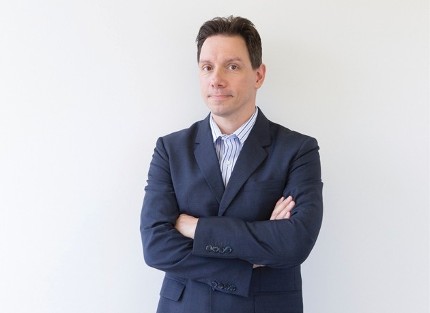
Source: Nature
Learn more about Dr Horvath at Dr Horvath’s faculty bio page.
Morgan Levine, PhD
Morgan Levine, PhD, works in pathology at the Yale University School of Medicine. Her research relies on bioinformatics to quantify the ageing process, understand the factors underlying ageing, and investigate how pharmaceutical compounds and lifestyle drive the rate of ageing.
She also does work at Altos Labs as a principal founding investigator into the mechanisms that drive the ageing process intending to create interventions. Her work at Altos Labs currently focuses on partially reprogramming cells to reverse epigenetic ageing. If successful, this should allow scientists to restore ageing cells by reprogramming the cells to an earlier and healthier state, thus increasing lifespan.
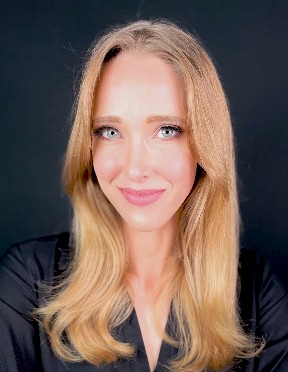
Source: Yale School of Medicine
Learn more about Dr Levine’s work at Laboratory for Aging in Living Systems at Yale.
Valter Longo, PhD
Valter Longo, PhD, is a professor of Gerontology and biological sciences at the University of Southern California, where he directs the USC Longevity Institute. His research focuses on understanding the fundamental genetic mechanisms of ageing, where he studies the effect on yeast, mice and humans. It’s known that caloric deficit increases lifespan, and Dr Longo is specifically interested in whether we can harness the benefits of caloric restriction without living in constant deficit. His research has implications for Alzheimer’s, cancer and other age-related diseases. The diet he developed and continues to refine has been clinically shown to decrease the biomarkers for ageing.
Dr Longo has spent decades studying the effects of nutrition and fasting on cellular ageing. He was awarded a patent for the Fasting Mimicking Diet®, or (FMD®), which was the first patent in history for “promoting longevity and healthspan”. He is also the writer of “The Longevity Diet“.
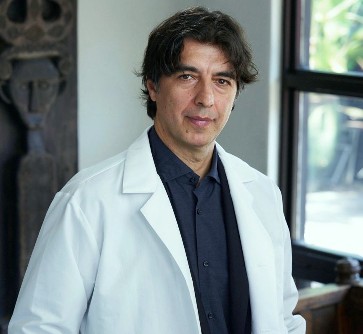
Source: www.valterlongo.com
Learn more about Dr Longo at the University of Southern California Faculty Page or ProLonFMD 5-Day Meal Program.
Stuart Phillips, PhD
Stuart Phillips, PhD, is a professor of kinesiology at McMaster University in Hamilton, Ontario, Canada. He serves as the Director of the Physical Activity Centre for Excellence. Dr Phillips’ research looks into the role of exercise and nutrition, and how these factors influence skeletal muscle, with a particular focus on body composition, especially as we grow older. Multiple studies link skeletal muscle and strength to healthy ageing. Dr Phillips’ research helps us better understand dietary, nutritional, and other metabolic and lifestyle factors that influence skeletal muscle. Muscle catabolism increases as we age, sedentary lifestyles and dietary deficiencies are drivers of age-related sarcopenia, but also lesser known conditions like anabolic resistance, and his research looks at ways of overcoming these factors so that we can maintain healthy muscles as we age.
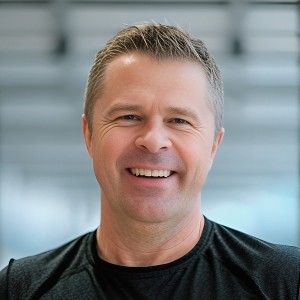
Source: McMaster University
Learn more about Dr Phillips at Stuart Phillips – Department of Kinesiology | McMaster University.
Dr Gordon Lithgow, PhD
Dr Gordon Lithgow is a professor of gerontology, he holds a position at the Buck Institute for Research on Ageing. Dr Lithgow works mainly with C. Elegans, tiny nematode worms, on which he studies a wide range of questions relating to ageing and how certain factors extend lifespan.
Among these questions are :
- The role of protein aggregation in neurodegenerative conditions.
- How heat stress and heat shock activate genetic pathways in humans and worms, and how it lowers protein aggregation and extends lifespan in worms.
- The role of iron in protein aggregation and how vitamin D can lower it.
- Testing potential lifespan extension compounds on worms.
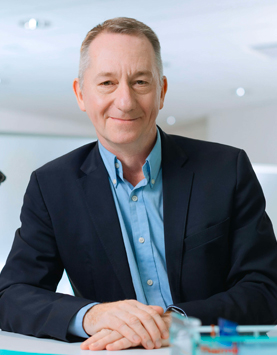
Source: Buck Institute
Learn more about Dr Lithgow at his lab at Buck Institute.
Dr Mark Mattson, PhD
Dr Mark Mattson is one of the most cited neuroscientists in the world, with more than 180,000 citations of his work noted in the scientific literature. A veritable legend, Dr Matson is an adjunct professor of neuroscience at Johns Hopkins University School of Medicine. He also held a position at the National Institute of Aging for almost twenty years.
Dr Matson’s research includes looking into the benefits of stress, metabolic switching and fasting. According to Dr Matson, it’s the abundance of food and relative lack of physical activity that allows cells to become complacent, which in turn reduces the body’s ability to stave off age-related dysfunction and degeneration. This research has identified metabolic versatility as one of the key components of longevity.
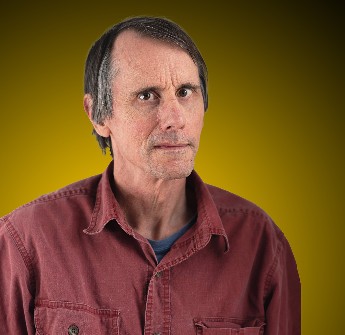
Source: The University of Iowa
Learn more about Dr Matson at Mark Matson Nature or Mark Matson Iowa University
Where the hammer meets the anvil
Longevity depends on numerous factors, and the researchers above are all shining a light on some of the most relevant conundrums that could advance longevity research from a field filled with hopes and dreams into a science that could add a significant number of years to our lives.

